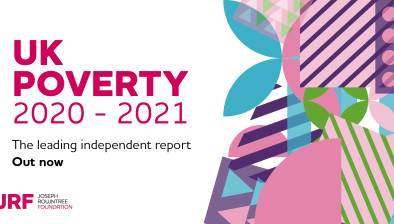Action to control cost of renting key to building a poverty free Scotland, says JRF

The Joseph Rowntree Foundation (JRF) has called for measures to control the cost of renting in Scotland and a tax on the Winter Fuel Payment as part of a wide-ranging plan to reduce high levels of poverty in the country.
As the political parties begin their campaigns for the Holyrood election, the independent development and social research charity is setting out its vision that would help create a prosperous, poverty-free Scotland.
JRF’s manifesto briefing outlines how the next government could use its current powers to reduce poverty, for example by controlling the cost of renting in Scotland, with an increase in affordable house building backed by a Living Rents scheme in areas where cost pressures are greatest.
Describing the private rented sector as the “frontline of rising poverty in Scotland”, the manifesto suggests that a rolling loans scheme should be available to landlords to improve the security and energy efficiency of privately rented properties.
It also proposes taxing the Winter Fuel Payment, once income tax powers are devolved, to better target social security and raise revenue for measures to address fuel poverty. This, it argues, would also avoid the problems of means-testing.
At the heart of JRF’s plan is a £500 million investment in the Scottish childcare system over the next decade to help reduce the attainment gap in schools and encouraging business to address in-work poverty by expanding access to high quality training in low paid sectors.
More than 200,000 children, 600,000 adults of working age and 100,000 retired people live in poverty in Scotland.
Working alongside businesses, housing providers, local government, charities and communities, JRF believes more can be done using both existing and new powers due to Scotland in the next parliament.
Jim McCormick, associate director for Scotland at JRF, said: “Poverty is risky, costly and wasteful, but is a problem that can be solved. There is an urgent need to act. We need leadership from the next Scottish government to develop an all-age strategy to reduce poverty and to focus resources on those in the greatest need and on effective approaches.
“Everyone has a role and responsibility in tackling poverty in Scotland, and there is already consensus between political parties on the need address this. Now we need to see this translated into action with a clear set of priorities in the next Parliament. We cannot afford to see a return to business as usual: nearly one in five people in Scotland live in poverty – a level unacceptably high for such a wealthy country.
“We need to be thinking long-term and driving forward a comprehensive plan for a Scotland without poverty. This is a challenge to all parties to set out their plans that will drive down levels of poverty and make sustained progress.”








